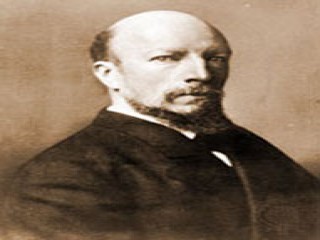
Felix Adler biography
Date of birth : 1851-08-13
Date of death : 1933-04-24
Birthplace : Alzey, Germany
Nationality : German
Category : Famous Figures
Last modified : 2011-05-02
Credited as : Professor of political ethics, social reformer, Society for Ethical Culture
Felix Adler American educator and social reformer, was one of the creators of the Society for Ethical Culture, a liberal religious movement in the United States and Europe. The motto of the society was "Deed not creed."
Felix Adler was born on Aug. 13, 1851, at Alzey in the Rhineland, Germany. He was the son of a rabbi. The family emigrated to the United States when Felix was 6. Adler graduated from Columbia College, New York, with highest honors in 1870. He prepared for the rabbinate in Berlin and Heidelberg, receiving a doctorate summa cum laude from the latter university in 1873. His exposure to biblical criticism, however, and growing concern with earthly human problems led him to renounce his rabbinical office upon his return to America. He soon became affiliated with the Free Religious Association, a group whose transcendentalist leanings had attracted the aging Ralph Waldo Emerson, and ultimately Adler succeeded the association's founder, Octavius Frothingham, as president. But in 1876 Adler and his friends formed a new group, the Society for Ethical Culture.
The Ethical Culture movement, which eventually spread abroad to London, Berlin, and Vienna, became Adler's main enthusiasm. His major writings expressed the society's philosophy: Creed and Deed (1877), The Religion of Duty (1905), An Ethical Philosophy of Life Presented in Its Main Outlines (1918), and The Reconstruction of the Spiritual Ideal (1924). Drawing upon Immanuel Kant's moral imperative (which stated that a man must treat his fellowmen as ends in themselves, not means), Adler contended that each man achieves individual excellency only through involvement in experiences which develop the excellencies of other men. Adler believed that a man's deeds, rather than his religious creed, are the essence of the religious life. The philosophy of Ethical Culture drew upon Judaism, Christianity, Emersonian transcendentalism, and socialism.
Adler lived according to his philosophy. Involved in education, he founded the free Workingmen's School in 1880 and other progressive schools and took part in projects leading to the establishment of the Child Study Association in 1907. In social work he participated in innovations in district nursing, cooperative workshops, settlement houses, and political reform clubs. He also served on governmental committees concerned with slum housing, vice, and child labor. From 1902 to 1933 Adler was professor of social and political ethics at Columbia University.
Adler married Helen Goldmark in 1880; they had five children. On April 24, 1933, after a short illness, Felix Adler died. A dedicated reformer who sought to advance ethics as the basis for human and social fulfillment independent of theism, he succeeded in inspiring a movement which has carried on his devotion to ethics in action.
Part 1 of Adler's An Ethical Philosophy of Life Presented in Its Main Outlines (1918) is autobiographical. Material may also be found in The Fiftieth Anniversary of the Ethical Movement, 1876-1926 (1926); Horace J. Bridges, ed., Aspects of Ethical Religion: Essays in Honor of Felix Adler (1926); and Henry Neumann, Spokesmen for Ethical Religion (1951). David Saville Muzzey, the noted historian, includes a brief sketch of Adler in Ethics as a Religion (1951).
















